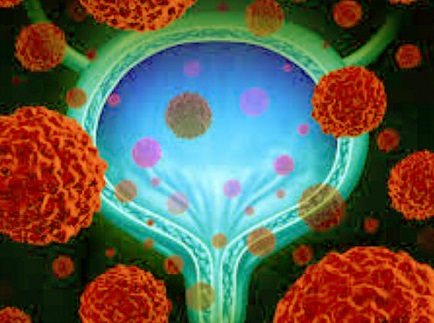Sebastian Lavoie Fact checked by:Thailand Medical News Team Sep 17, 2024 1 year, 4 months, 3 weeks, 3 days, 3 hours, 36 minutes ago
Cancer News: Bladder cancer remains one of the most common urological malignancies, ranking just below prostate cancer in incidence. Among the various factors contributing to its development and prognosis, oxidative stress has long been suspected as a key player. A new study conducted by researchers from several prominent institutions in Turkey has now taken a closer look at one of the body's primary antioxidant defenses: glutathione. The study covered in this
Cancer News report, explored whether this powerful antioxidant has any role in determining the prognosis of non-muscle-invasive bladder cancer (NMIBC).
 Glutathione’s role in bladder cancer
The Study's Approach
Glutathione’s role in bladder cancer
The Study's Approach
The study, carried out at the Department of Urology at Diskapi Yildirim Beyazit Training and Research Hospital, the University of Health Sciences, and Etlik City Hospital in Ankara, Turkey, sought to understand the relationship between glutathione levels and bladder cancer prognosis. Glutathione is a critical antioxidant that defends cells against damage from oxidative stress, a condition caused by an imbalance between free radicals and antioxidants in the body. Oxidative stress has been linked to the development of several cancers, including bladder cancer.
The researchers focused on patients with non-muscle-invasive bladder cancer (NMIBC), a less aggressive form of the disease that has not yet invaded the muscular wall of the bladder. The study included 98 patients with high-grade NMIBC who had undergone Bacillus Calmette-Guérin (BCG) therapy, a common treatment for this type of cancer, and compared them with 30 healthy controls. The patients were divided into three groups: those who experienced no recurrence of their cancer, those who had recurrent tumors, and those whose cancer progressed to the muscle-invasive stage.
Understanding Glutathione’s Impact
Blood samples were taken from all participants, and the levels of reduced glutathione (GSH), oxidized glutathione (GSSG), and total glutathione were measured. Reduced glutathione (GSH) is the active form of the antioxidant, while oxidized glutathione (GSSG) is the inactive form. The study highlights that the ratio of GSH to GSSG is considered an indicator of oxidative stress: the higher the ratio of GSSG to GSH, the greater the oxidative stress.
The study revealed significant differences in glutathione levels between the cancer patients and the healthy controls. Reduced and total glutathione levels were significantly lower in all cancer patients compared to the control group. Conversely, oxidized glutathione levels were higher in the cancer patients, suggesting increased oxidative stress in these individuals.
Key Findings and Implications
The study’s findings showed that while glutathione levels were markedly different between the cancer patients and the healthy controls, there were no significant differences in glutathione levels among the three groups of cancer patients. This suggests that while oxidative stress may play a role in the development of bladder ca
ncer, glutathione levels do not appear to influence the prognosis of the disease.
The researchers concluded that although reduced levels of glutathione might contribute to the onset of bladder cancer, the antioxidant does not seem to impact whether the cancer will recur or progress to a more invasive stage. However, they emphasized the need for further studies with larger patient cohorts to better understand the role of glutathione in bladder cancer prognosis.
Glutathione and Antioxidant Defense
Glutathione is a tripeptide composed of three amino acids: cysteine, glutamic acid, and glycine. It is found in nearly all tissues of the body but is particularly abundant in the liver. It exists in two forms: reduced glutathione (GSH) and oxidized glutathione (GSSG). More than 90% of glutathione in the body is in the reduced form, where it actively protects cells from oxidative damage by neutralizing free radicals.
In healthy cells, glutathione helps maintain a balance between oxidative damage and antioxidant defenses. However, when the balance is disrupted - such as by environmental toxins, smoking, or poor diet - the resulting oxidative stress can lead to cell damage, mutations, and cancer.
Previous research has suggested that glutathione and its related enzymes play a role in the development of bladder cancer. For instance, studies have shown that lower levels of glutathione-related enzymes are associated with more aggressive forms of the disease. However, until this study, there had been limited research into the direct role of glutathione itself in bladder cancer.
Potential Applications of the Findings
The results of this study raise intriguing possibilities for future research into bladder cancer prevention and treatment. While glutathione does not appear to influence the progression of the disease, its role in preventing the onset of bladder cancer suggests that maintaining healthy levels of this antioxidant could be beneficial.
For patients with bladder cancer or those at risk of developing the disease, dietary and lifestyle changes that increase glutathione levels might offer a preventative measure. Foods rich in sulfur-containing compounds, such as garlic, onions, and cruciferous vegetables, can boost glutathione production in the body.
Additionally, supplements such as N-acetylcysteine (NAC) are known to increase glutathione levels.
However, more research is needed to determine whether these interventions could reduce the risk of bladder cancer or improve outcomes for patients already diagnosed with the disease.
Conclusion
In conclusion, this study adds to the growing body of evidence linking oxidative stress to the development of bladder cancer. The researchers found that while glutathione plays a role in the emergence of bladder cancer, it does not appear to influence its prognosis. The study’s findings underscore the importance of further research into the role of antioxidants in cancer development and suggest that maintaining healthy levels of glutathione might help reduce the risk of bladder cancer.
The study findings were published in the peer-reviewed journal: The Journal of Clinical Medicine.
https://www.mdpi.com/2077-0383/13/18/5483
For the latest
Cancer News, keep on logging to Thailand Medical News.
Read Also:
https://www.thailandmedical.news/news/drug-combo-shows-promise-for-prostate-and-bladder-cancer
https://www.thailandmedical.news/news/herbs-and-phytochemicals-german-study-shows-that-mistletoe-extracts-inhibit-bladder-cancer-cell-growth-and-proliferation
